What Spain’s political crisis means for Catalan independence
Ousting of tough-talking PM Mariano Rajoy expected to reignite separatist dreams
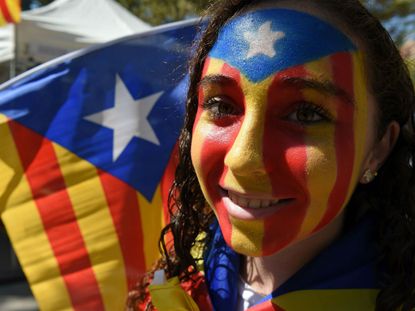
Mariano Rajoy has become the first prime minister in Spain’s history to be removed from office after losing a no-confidence motion, plunging the country into political uncertainty.
The motion passed by four votes in the Spanish parliament on Friday, amid a corruption scandal that has plagued Rajoy’s People’s Party. The defeat forced the centre-right Prime Minister to hand over the reins to Pedro Sanchez, leader of the Spanish Socialist Workers’ Party (PSOE).
Sanchez has pledged to hold elections at an unspecified future date, but in the meantime the Catalan crisis will surely be near the top of the interim leader’s to-do list.
Subscribe to The Week
Escape your echo chamber. Get the facts behind the news, plus analysis from multiple perspectives.

Sign up for The Week's Free Newsletters
From our morning news briefing to a weekly Good News Newsletter, get the best of The Week delivered directly to your inbox.
From our morning news briefing to a weekly Good News Newsletter, get the best of The Week delivered directly to your inbox.
What is the situation in Catalonia?
The ousting of Rajoy comes as Catalonia also grapples with political upheaval.
The region’s autonomy has been suspended following the unauthorised independence referendum in October last year.
Deposed leader Carles Puigdemont, currently under arrest in Germany, faces sedition charges if he returns to Spain, and efforts to replace him have sparked further controvery.
On 14 May, almost seven months after Puigdemont fled his homeland, Catalan MPs elected ultra-nationalist firebrand Quim Torra as the region’s new president.
Despite misgivings over his virulent anti-Spanish rhetoric, Torra has “named a cabinet without detained or exiled former ministers, paving the way for Madrid to end its direct rule over the northeastern region”, says news site The Local.
Where does Sanchez stand on Catalonia?
Even at the height of the referendum crisis, Rajoy refused to engage with the possibility of Catalan independence, and it appears that - in spite of their other political differences - Sanchez intends to follow his predecessor’s course.
During a no-confidence debate on Thursday, Sanchez said he hoped for a “dialogue” with the Catalan government, but stressed that any negotiations would have to abide by the Spanish Constitution, which enshrines the “indissoluble unity” of the nation.
However, with just 84 PSOE deputies in Spain’s 350-seat parliament, maintaining that stance may prove difficult.
To pass the no-confidence vote, Sanchez relied on the support of left-wing parties Unidos Podemos and EH Bildu, Catalan nationalists ERC and PDeCAT, and the Basque Nationalist Party (PNV) - all of whom are in favour of self-determination for Catalonia.
As Madrid-based newspaper El Pais says: “Can Sanchez aspire to manage the Catalan crisis from a minority position within his own parliamentary coalition, while a minority within the pro-Constitution bloc itself? It will be difficult.”
Indeed, irrespective of what Sanchez may want to do on the Catalonia issue, the harsh reality is that he may not be able to do anything at all.
As head of a minority government with no popular mandate, the interim PM’s time in office “is unlikely to yield profound changes”, says The Guardian.
Create an account with the same email registered to your subscription to unlock access.
Sign up for Today's Best Articles in your inbox
A free daily email with the biggest news stories of the day – and the best features from TheWeek.com
-
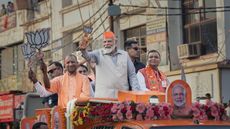 India elections start amid violence, hate speech accusations
India elections start amid violence, hate speech accusationsTalking Points Narendra Modi seeks a third term while critics worry about the future of the country's democracy
By Joel Mathis, The Week US Published
-
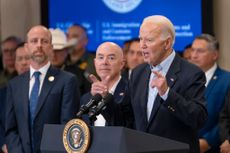 'Biden is smart to keep the border-security pressure on'
'Biden is smart to keep the border-security pressure on'Instant Opinion Opinion, comment and editorials of the day
By Harold Maass, The Week US Published
-
 Bird flu worries mount as virus found in milk, cows
Bird flu worries mount as virus found in milk, cowsSpeed Read The FDA found traces of the virus in pasteurized grocery store milk
By Peter Weber, The Week US Published
-
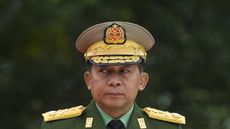 Myanmar: the Spring Revolution and the downfall of the generals
Myanmar: the Spring Revolution and the downfall of the generalsTalking Point An armed protest movement has swept across the country since the elected government of Aung San Suu Kyi was overthrown in 2021
By The Week Staff Published
-
 Israel hits Iran with retaliatory airstrike
Israel hits Iran with retaliatory airstrikeSpeed Read The attack comes after Iran's drone and missile barrage last weekend
By Peter Weber, The Week US Published
-
 Is there a peaceful way forward for Israel and Iran?
Is there a peaceful way forward for Israel and Iran?Today's Big Question Tehran has initially sought to downplay the latest Israeli missile strike on its territory
By Sorcha Bradley, The Week UK Published
-
 Sudan on brink of collapse after a year of war
Sudan on brink of collapse after a year of warSpeed Read 18 million people face famine as the country continues its bloody downward spiral
By Peter Weber, The Week US Published
-
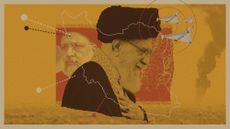 How powerful is Iran?
How powerful is Iran?Today's big question Islamic republic is facing domestic dissent and 'economic peril' but has a vast military, dangerous allies and a nuclear threat
By Harriet Marsden, The Week UK Published
-
 US, Israel brace for Iran retaliatory strikes
US, Israel brace for Iran retaliatory strikesSpeed Read An Iranian attack on Israel is believed to be imminent
By Peter Weber, The Week US Published
-
 How green onions could swing South Korea's election
How green onions could swing South Korea's electionThe Explainer Country's president has fallen foul of the oldest trick in the campaign book, not knowing the price of groceries
By Sorcha Bradley, The Week UK Published
-
 Ukraine's battle to save Kharkiv from Putin's drones
Ukraine's battle to save Kharkiv from Putin's dronesThe Explainer Country's second-largest city has been under almost daily attacks since February amid claims Russia wants to make it uninhabitable
By Sorcha Bradley, The Week UK Published